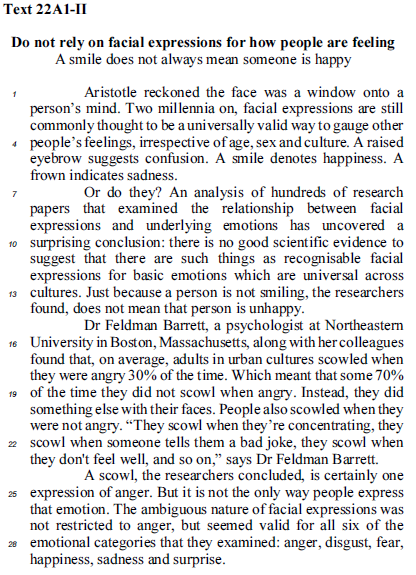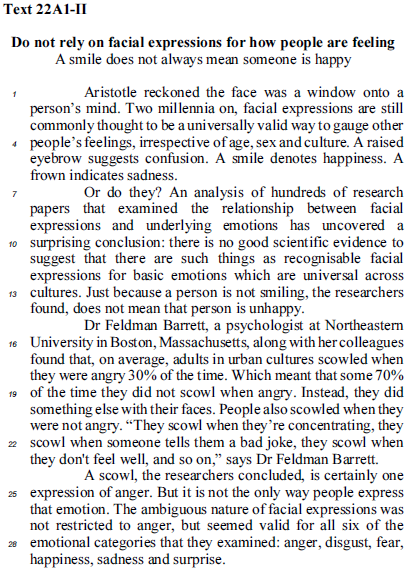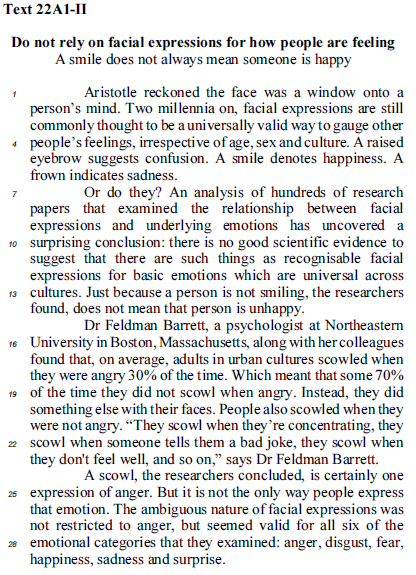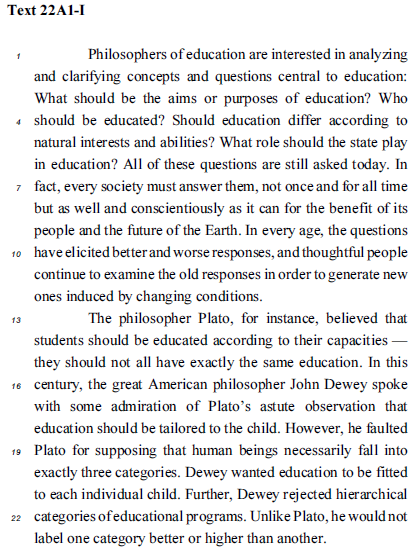Questões de Inglês da Centro de Seleção e de Promoção de Eventos UnB (CESPE)
Lista completa de Questões de Inglês da Centro de Seleção e de Promoção de Eventos UnB (CESPE) para resolução totalmente grátis. Selecione os assuntos no filtro de questões e comece a resolver exercícios.
About ideas stated in the text above and the words used in it, judge the following item.
In Natural gas and coal-fired power plants need water to stay online. Yet those water facilities froze in the cold temperatures and others lost access to the electricity they require to operate, it is possible to substitute Yet for Even so without changing the meaning of the sentence.
About ideas stated in the text above and the words used in it, judge the following item.
There are places in the world where wind power works well in freezing temperatures.
About ideas stated in the text above and the words used in it, judge the following item.
There are other states, like Florida, that produce energy on a level similar to that of Texas.
About ideas stated in the text above and the words used in it, judge the following item.
Changes in energy production in Texas are having an impact across the United States.
About ideas stated in the text above and the words used in it, judge the following item.
Despite the cold temperatures, energy production in Texas continued unimpeded.
About ideas stated in the text above and the words used in it, judge the following item.
In the last paragraph of the text, That refers to the decision by Texas to isolate its energy grid from the rest of the country.

The economist. science & technology. Feb 20th 2020
edition. Internet:
I By asking her pupils to guess the overall sense of the text just from its title, she would be promoting the use of the technique known as skimming.
II Exercises based on the skimming technique would demand her pupils to have a high level of vocabulary.
III If she asks the students to find out the name of the university in which Dr Barret works, they would be making a prediction.
Choose the correct option.
-
A) Only statement I is correct.
B) Only statement II is correct.
C) Only statement III is correct.
D) Only statements I and II are correct.
E) All three statements are correct.

The economist. science & technology. Feb 20th 2020
edition. Internet:
-
A) In line 4, irrespective of can be correctly replaced with intertwined with in terms of meaning.
B) In which are universal across cultures (l. 12 and 13), which refers to basic emotions (l.12).
C) In line 19, the two occurrences of they replace adults in urban cultures (l.17).
D) In line 19, Instead can be correctly replaced with In spite of this in terms of meaning.
E) In But it is not the only way people express that emotion. (l. 25 and 26), it and that refer to anger (l.25).

The economist. science & technology. Feb 20th 2020
edition. Internet:
-
A) there is a similarity between the results of the study and Aristotle's opinion.
B) scowling may mean various things when it comes to showing emotions.
C) Dr Barret was the head of the psychology department in which the study was carried on.
D) in 70% of the time they are angry, people do manage to smile.
E) the researchers concentrated their work on the relations between scowling and anger.

Nel Noddings. Philosophy of education. New York: Routledge, 2018 (adapted).
-
A) are interested in (l.1) inspired in
B) thoughtful people (l. 10) sympathetic people
C) but as well (l.8) however well
D) he faulted Plato (l. 18 and 19) the American criticized Plato
E) he would not label (l. 22 and 23) he did not ought label


